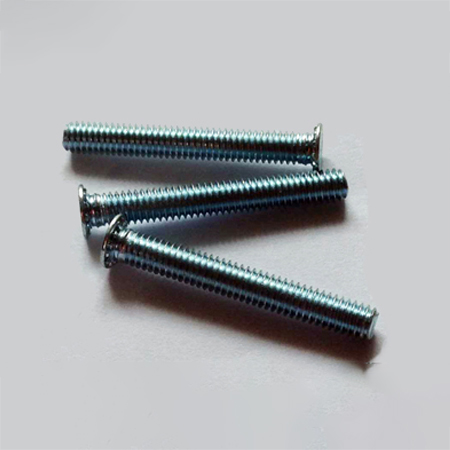Self-clinching Screws are designed to provide a secure and permanent fastening solution in thin metal sheets. When installed correctly, they create a strong and reliable joint that resists loosening and maintains structural integrity. However, like any fastening method, the long-term performance of self-Clinching Screws can be influenced by various factors.

Under normal operating conditions and within the intended load and torque limits, self-Clinching Screws are less likely to deform or become compromised. Their design ensures that the threads and shank of the screw distribute the load evenly, minimizing stress concentration points.Factors that can affect the potential for deformation of self-Clinching Screws over time include:
1. Material Compatibility: Using self-clinching screws made from a compatible material with the base metal sheet is crucial. Mismatched materials can lead to galvanic corrosion or accelerated wear, which may eventually affect the screw's integrity.
2. Installation Accuracy: Proper installation is essential. If the screw is over-tightened or under-tightened, it can lead to stress concentration, premature wear, or loosening over time.
3. Vibration and Dynamic Loads: Applications subjected to frequent vibration, shock, or dynamic loads can lead to fatigue and potential deformation over an extended period. In such cases, consider using self-clinching screws with locking features or additional measures to prevent loosening.
4. Environmental Factors: Harsh environments with exposure to corrosive substances, moisture, or extreme temperatures can accelerate wear and potentially lead to deformation of the screws.
5. Excessive Loads: Exceeding the load or torque specifications for the self-clinching screws can lead to deformation or failure over time.
6. Thread Galling: In cases where the threads of the screw and the mating thread in the metal sheet experience friction, thread galling can occur, potentially affecting the screw's performance and leading to deformation.
7. Regular Maintenance: Periodic inspection and maintenance can help identify any signs of deformation or wear in self-clinching screws. Replacing damaged screws promptly can help prevent issues.
It's important to note that when used within their specified limits and under suitable conditions, self-clinching screws should provide a durable and reliable fastening solution. However, like any mechanical component, they may experience wear or deformation over a very extended period of use or under unfavorable conditions. Regular maintenance, proper installation techniques, and choosing the appropriate self-clinching screws for your specific application can help mitigate potential issues and ensure their long-term performance.